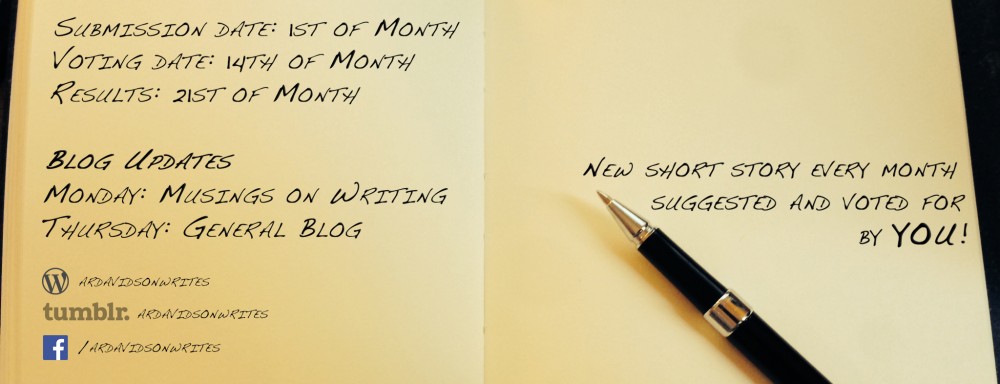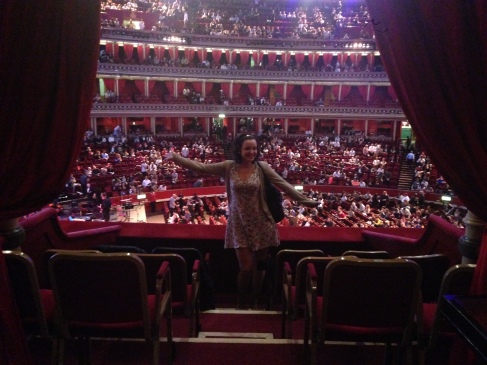Hello,
Here’s a delightfully intangible thing: Inspiration.
What is it? Where does it come from? How can we harness it? How can we generate it?
I had planned to write a very sweeping statement about what my inspiration is, and I was thinking through my previous writing to confirm the statement. However, as I thought back I realised that this wasn’t the case at all. I feel a little like I’ve been lying to people. I had to think more, where DID my inspiration come from? I had planned to say that ideas come to me in a very visual way, often a single striking image that over time becomes a story. Even though this isn’t true in every case, it is where I will start.
It is common that I will get an image of something and work my way backward from there. One such image was of a yellow and red sunset sky, silhouetted against which was a flock of birds that transformed into a formation of military aircraft across the image. For the longest time I didn’t know what that story was, but I was interested in the imagery of it. In time it became a story about a lone survivor of a battle, wounded and going delirious who befriends a young French girl who is playing the in woods. They were not able to communicate with each other but after all the fighting the soldier has witness she was a vision of an innocent future yet possible.
Sometimes I get a particular phrase stuck in my head. My novel stemmed from the phrase “They’re here” and worked forward from there originally as a very straight horror, but it changed over time to be less about who they were and more about how it all effected the central character, Evin. After a considerable period of rumination and false starts I realised that it was a story about Evin asking herself the question we all face at some point in our life: “Who am I?”
Other times ideas grow out of a sense of wanting to look at something from a different angle. I have spoken often (outside this blog) about my apathy toward the Zombie genre. I can count on one hand the works about Zombies that actually interest me, and they tend to be the ones that actually have very little to do with Zombies (TellTale Games video game of The Walking Dead was not only not about Zombies, it was also one of the best pieces of written entertainment in 2012). As I sat listlessly watching another retread of Zombie tropes I wondered how a Zombie would feel about the representation of Zombies in the media. I thought of him being offended by it. This idea grew to be a short film I made a couple of years ago called Dates of the Undead:
I’m the first to admit that translating those kernels of inspiration into salty idea-popcorn goodness is not something I’m very quick at. Those ideas tend to stick in my head and ruminate for a long time before I feel ready to put them on paper. I have got better and have picked up some good writing exercises over the years that have helped. There’s a great one for laying out structure/story/themes/characters that I used recently to start the book and last week for the short story. I thought it might be interesting to share the process of writing the short story, so after it has been published tomorrow I will talk about the process of taking the idea from suggestion to story and I will post this on Thursday.
I think my two favourite writing exercises are to write a monologue for a character stating who they are and what it is they want, and how they are going to achieve it. This will work for all your characters, you will find that with each character you will instinctively give them voices, and their desires and how they intend to achieve them will reveal a lot about who they are. It also means, at least to me, that when I start writing that I already know them, yes they will still surprise in the writing process, but the starting off point is less daunting.
A similar piece to this is to write a dialogue between two characters, if they are the protagonist and the antagonist it will help. Think of yourself as a counsellor for the characters. Let the protagonist state what they want and the antagonist state how they can’t have it. Again, it will be revealing and help find who the characters are. Give them weaknesses that will hinder their ability to get what they want. Not necessarily physical weaknesses, it could be impatience or a short temper.
Finally, where can you find inspiration? I did a writing course a few years ago and was told to choose a story from a newspaper, and write a scene based upon it. I’d found a small story about a couple on holiday who had been tied up and robbed. It was a horrible story and I don’t know why I picked it. Every part of the article made me sick and angry, the couple were threatened with assault and at times separated from each other. I wrote two pages of just utter rubbish, it was full of cliché and didn’t go anywhere or mean anything. It was a struggle to write and I only finished it the night before the next class. Out of those two pages, of all those words, the only thing that sparked any interest in me was five words: “Why do you love her?”
I became desperately intrigued by this. Why would someone take people hostage and demand an explanation of love? What would the answer be? If the people were physically separated from each other would their answers be the same? What if they weren’t the same? What if they didn’t know that? The story became about lies and truth. Lies we tell ourselves, truths we hide, accepting or rejection those ideals. It was a cat and mouse of what do people say and what do they mean.
Out of that article of misery, of two pages of horrible writing, came five words that inspired something much bigger and better.
I guess the point is that inspiration comes from anywhere, the trick is to be able to recognise it and harness it. To take whatever it is and work at it, use any tool available to you to create something from it. Sometimes that it won’t work, sometimes it’s not meant to work. But sometimes something better will come from that failure.
– Andrew


